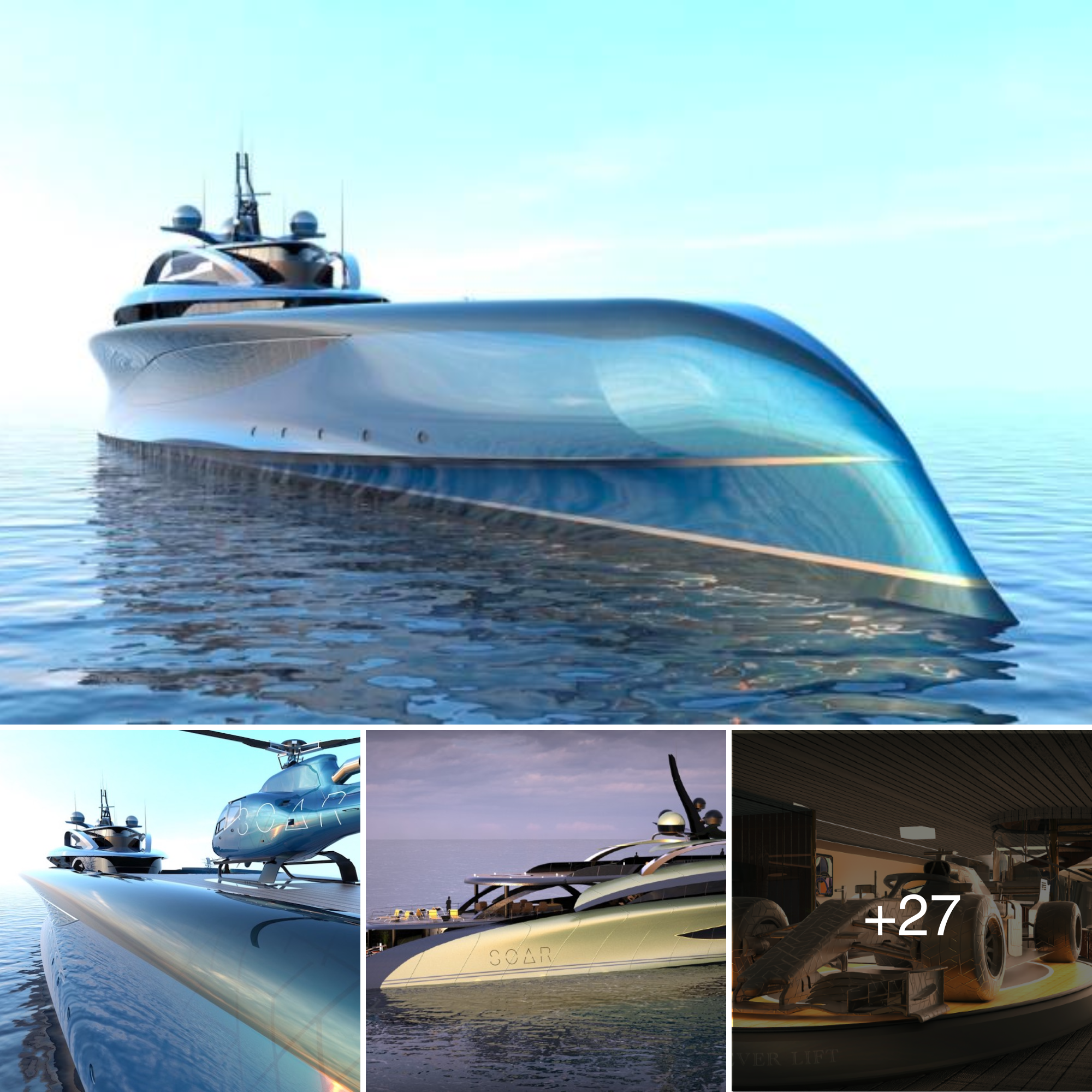
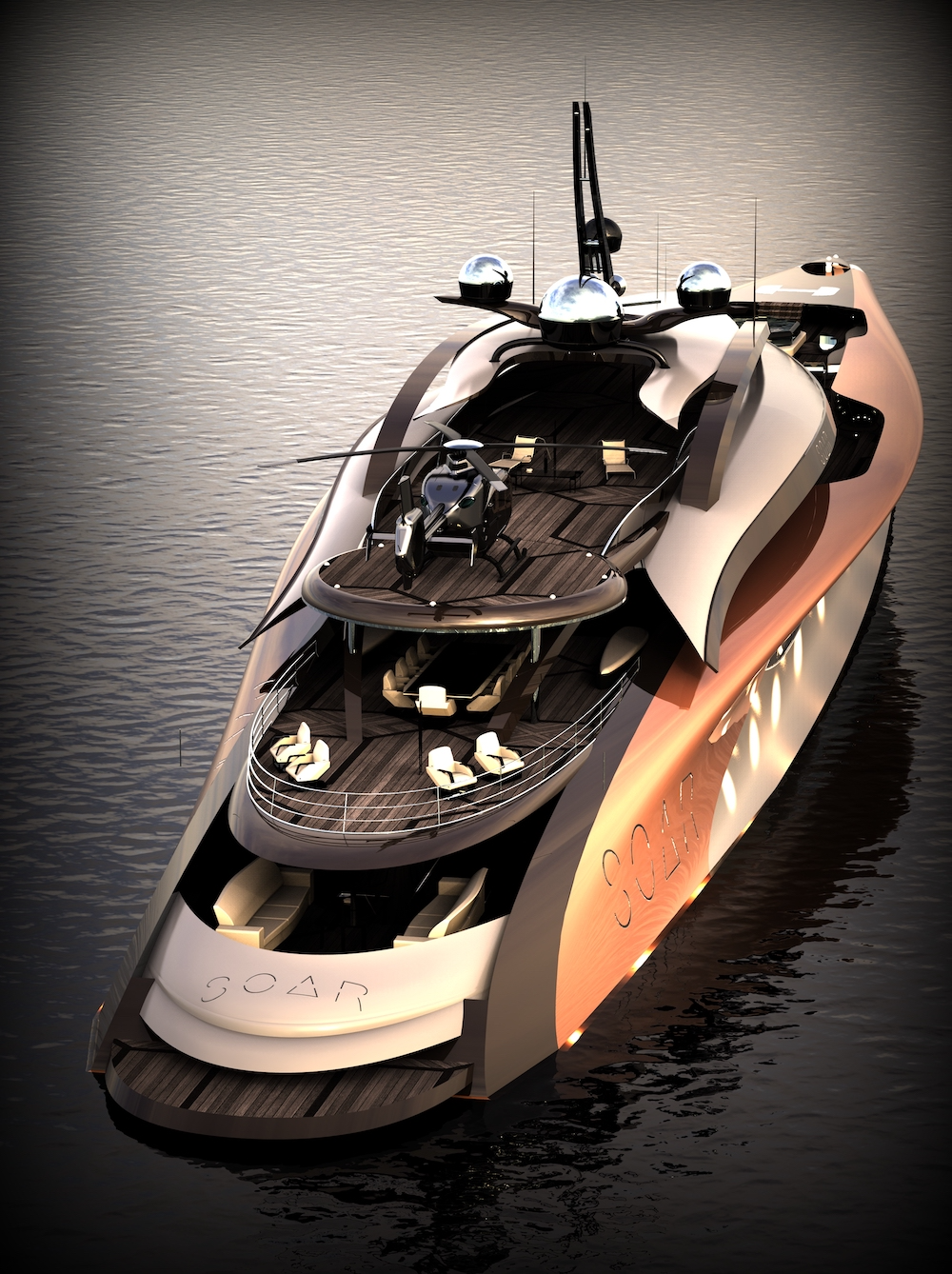
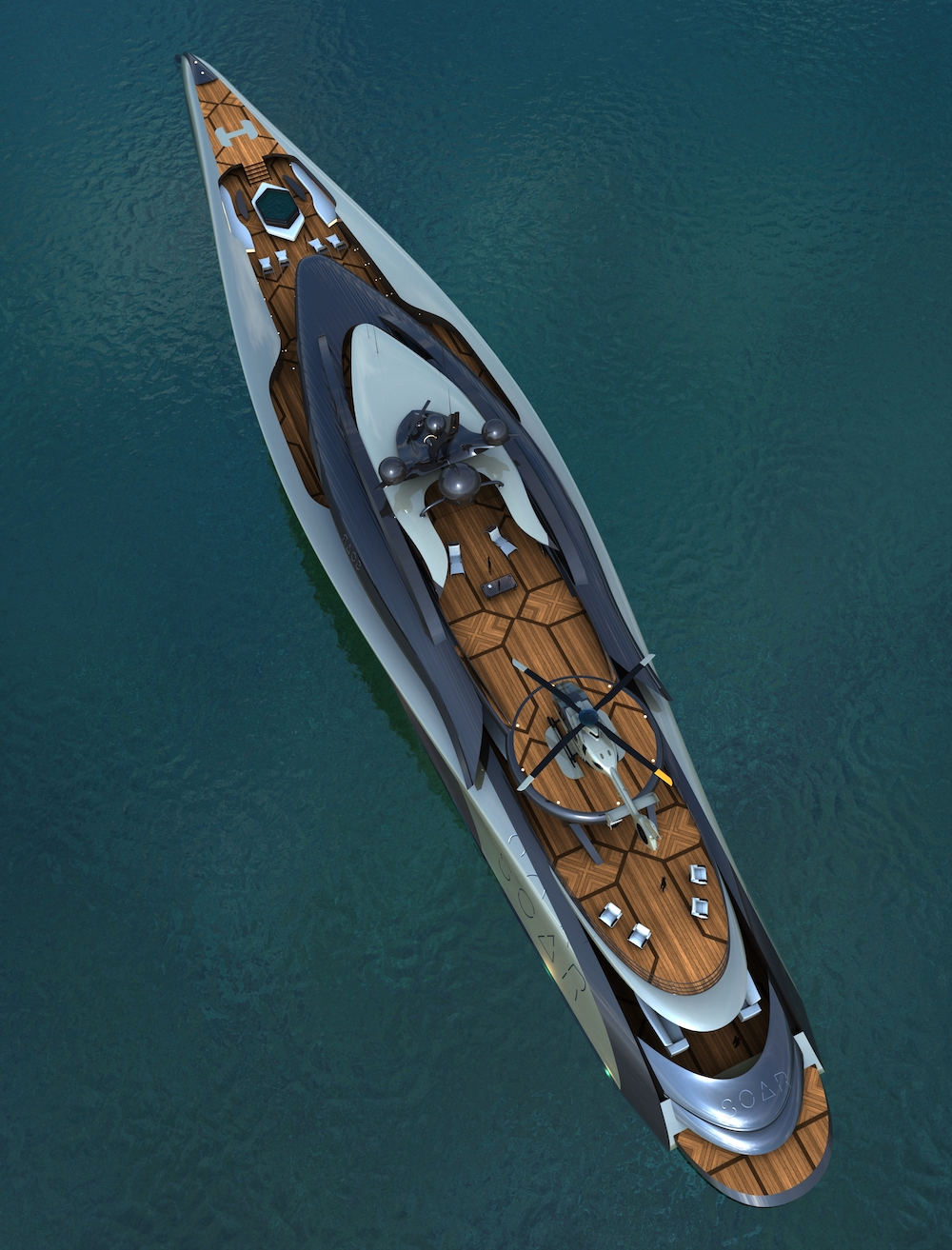
The design of superyachts draws inspiration from a variety of industries, such as the automotive industry for its large, curved glass windows and the luxury condominium market for its expansive, open-floor plans. J. David Weiss of Designova drew inspiration for his new 345-foot concept, Soar, from nature, the progenitor of creativity.
Weiss explains that the design, shape, and name of Soar were inspired by the graceful flight of large birds of prey as they “soar” through the air. The glossy black steel hull of the yacht, which was designed in collaboration with racing and sailing yacht experts, resembles the pointed structure of a bird’s cranium, while the yacht’s internal and external support system was inspired by their skeletons.
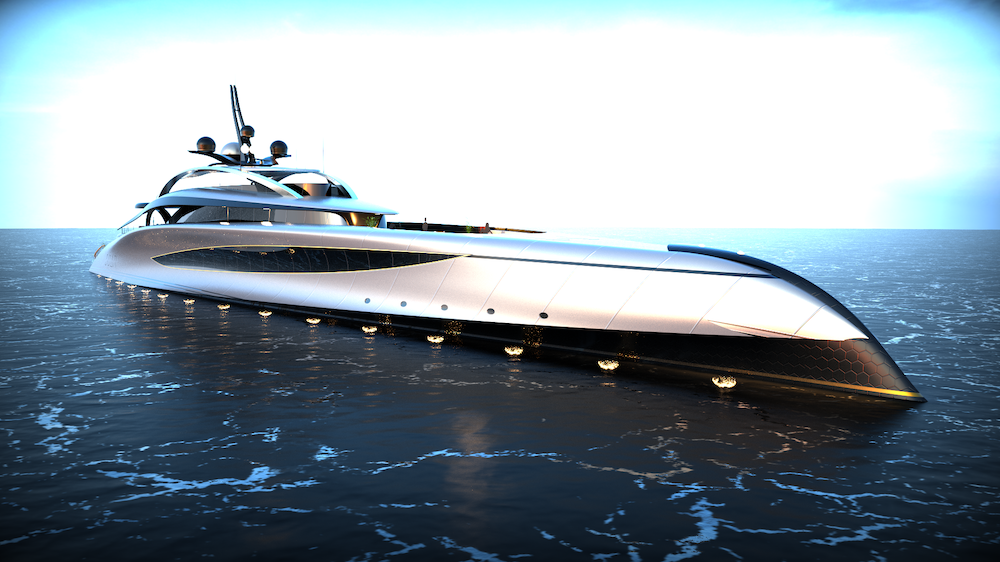
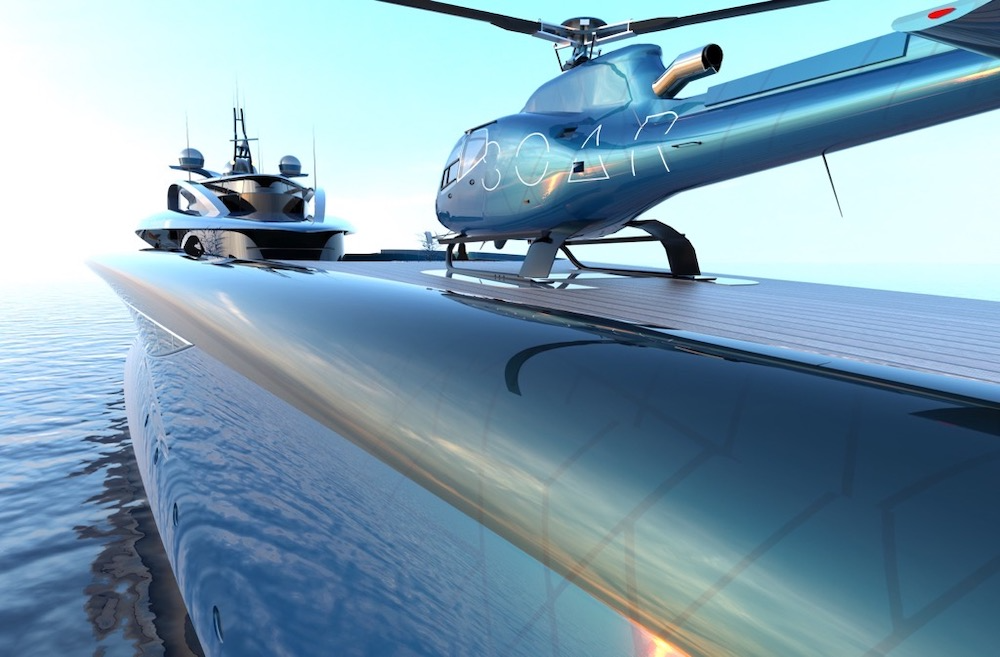
The concave forms of the upper freeboard, which extend at the top and provide unobstructed views of the sea when cruising and at anchor, bear more resemblance to nature. This allows for more space on the upper main decks while maintaining a 47-foot waterline beam width.
Weiss told Robb Report, “The avian world has pneumatic and intricate internal structures within their bones that make birds light and strong while providing space for extra oxygen as they fly.” It inspired me to create a support system between decks that allows for larger expanses of glass and uninterrupted views of the ship’s interior.
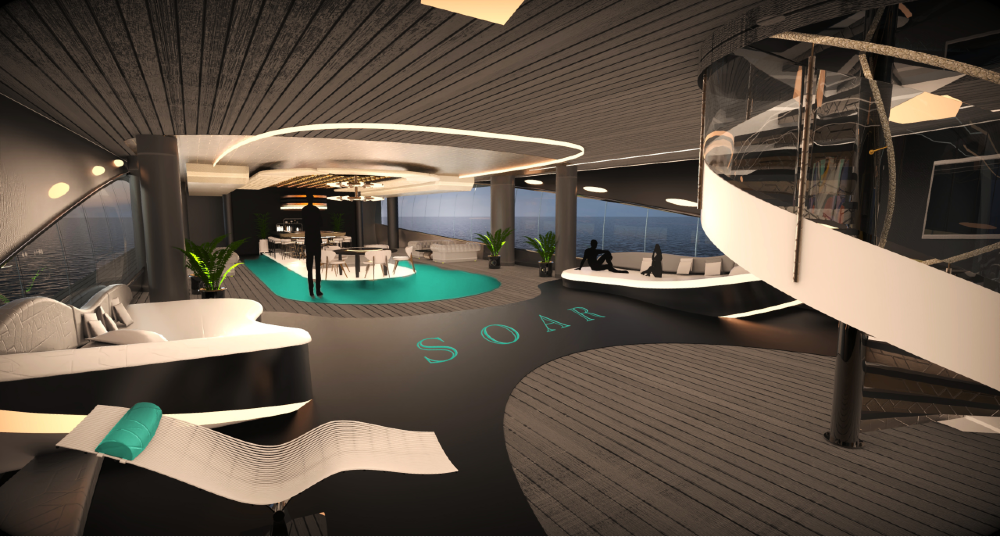
Unlike most yacht concepts, which are the product of a designer’s creative imagination, Soar is the result of a single owner’s desire for a moderately-sized vessel with speed and space.
“As my conversations with the owner progressed, we realized that by making the yacht longer, narrower, and with fewer decks, we could achieve his desired elements with even greater efficiency,” says Weiss.
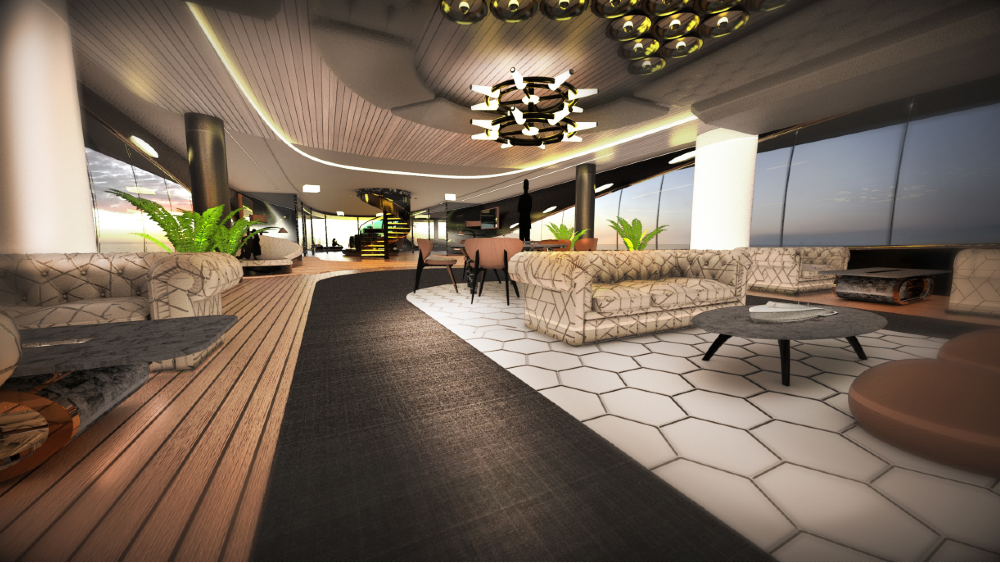
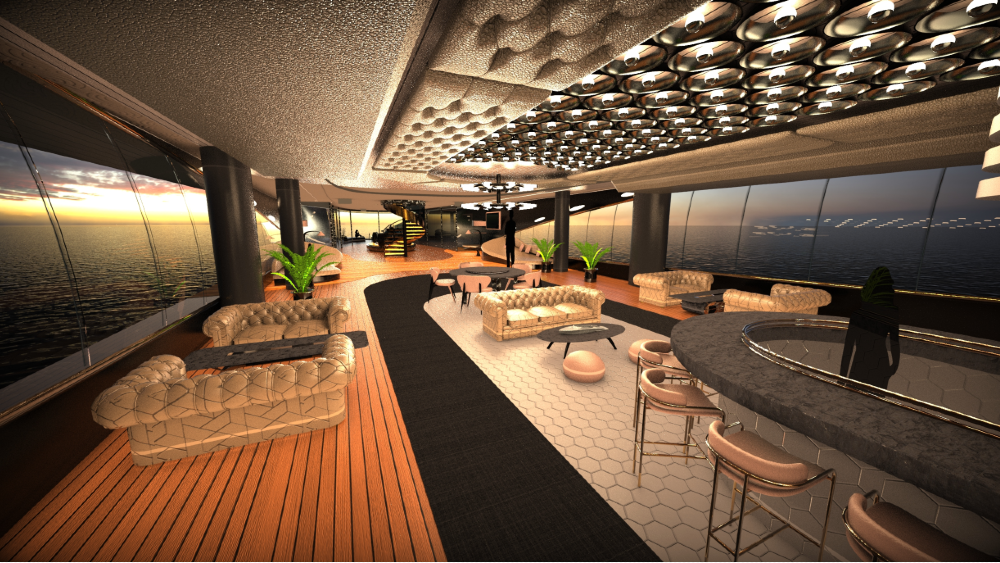
The proprietor never built the concept, but Weiss continued to borrow from other industries throughout the design process. He sought advice from a Small Waterplane Area Twin Hull (SWATH) expert concerning the design of the dramatic reverse bow. Its shape resembles a bird’s mandible and is intended to increase speed, efficiency, and stability.
Soar is designed to be a rapid cruiser with hydrogen fuel-cell propulsion and an electric hybrid cruising system for low-speed navigation. It has an estimated maximum speed of 30 knots when powered by a large-scale GE marine turbine for “more exciting speeds.”
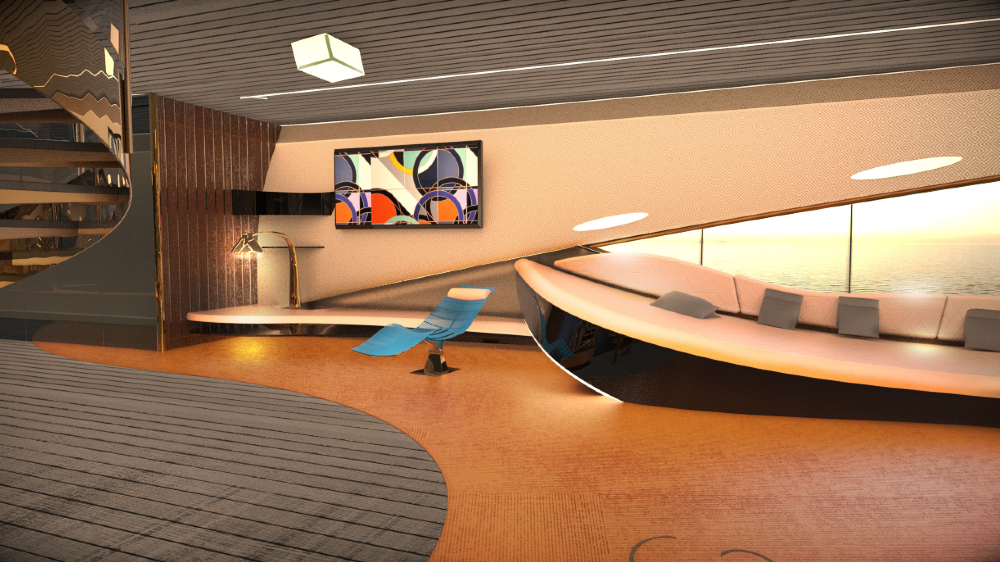
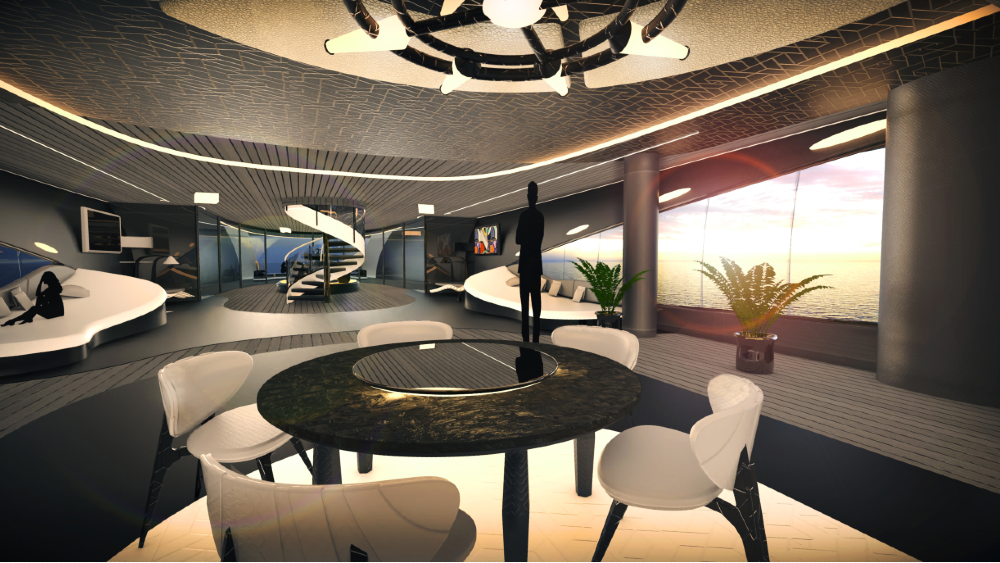
Weiss’s list of recommended tenders and diversions includes an electric Voltari performance runabout and four T3mp3st jet skis, both of which were designed by Weiss. In addition to the two existing helipads — one dedicated landing location on the flybridge aft and one touch-and-go circle on the foredeck — a small personal electric quadcopter may be housed in a custom hangar at the bow.
The interior design incorporates multiple configuration options developed with the preferences of future homeowners in mind. The twin pool configuration features a family-friendly pool deck at the stern and a private owner’s pool on the foredeck. The figure-eight-shaped pool of the proprietor features a counter-flow system.
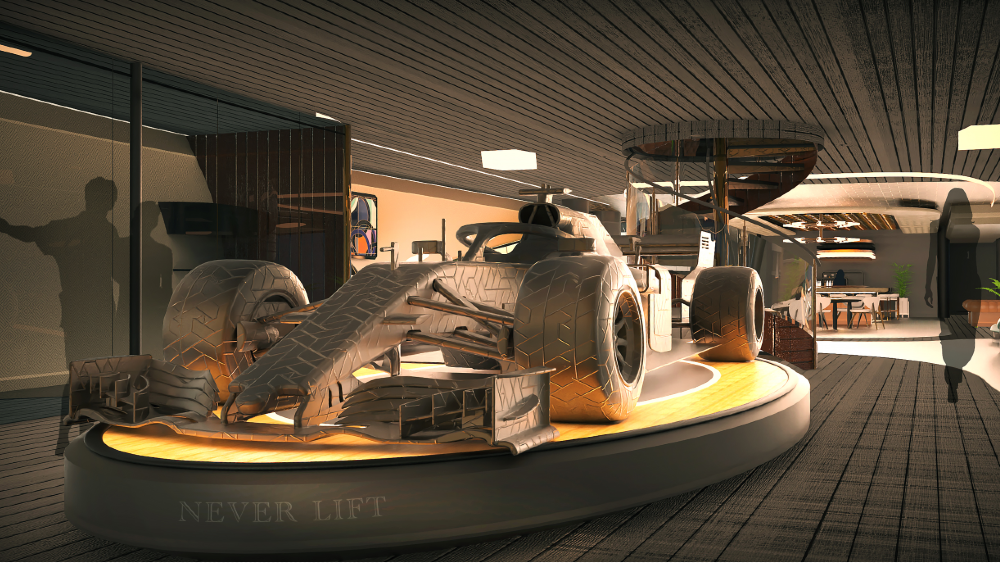
Soar can be constructed with the helm located on the main deck, freeing up the forward flybridge area (typically where the captain’s bridge is located) to become a dedicated owner’s suite for those who desire the finest views on board.
The exterior’s curvaceous, flowing lines are mirrored in the open-plan interior, which features a central staircase that winds through the terraces and a collection of natural materials and fabrics. Featured prominently in the interior design are expansive living spaces centered on entertainment. These include carved-out open spaces amidships that provide sheltered alfresco “havens,” while also reducing the yacht’s gross tonnage.
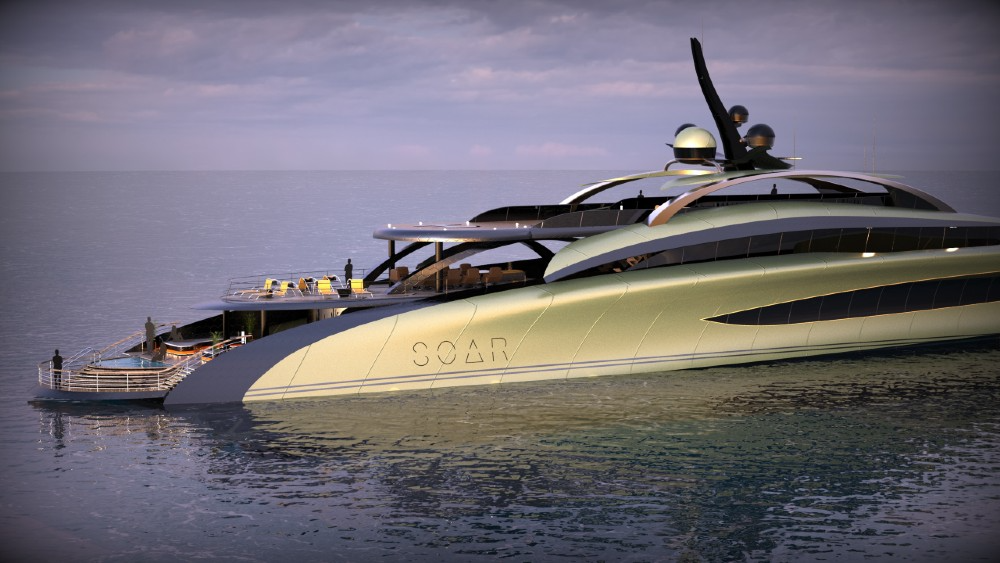
Additionally, there are wide passageways between decks, vast gallery-like spaces for displaying modern art, and elevated platforms that were originally designed for displaying the owner’s collection of Formula 1 sculpture and artifacts.
One is left with the impression of a very long sport boat with a spacious, lively interior and a long beak at the bow, which makes this a singular bird of prey.